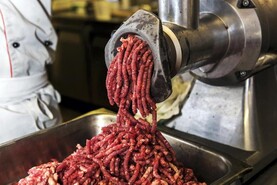Upcoming legislation on cutting greenhouse gas emissions in NI could include separate targets for methane, new proposals from DAERA suggest.
A discussion document on a NI climate change bill recognises that methane, which is emitted from ruminant livestock, is a “short-lived flow pollutant” which breaks down in the atmosphere after 10-12 years.
“As long as these emissions remain constant or decrease, their overall concentration and warming effect remains roughly constant or reduced, over a relatively short period of time,” DAERA stated.
Methane differs to carbon dioxide, which comes from burning fossil fuels and stays in the atmosphere and has a warming effect for centuries.
The DAERA document also recognises the role that the agriculture and land use sectors have in removing carbon from atmosphere
DAERA suggests that, as part of a new climate change bill for NI, separate emissions targets for long- and short-lived pollutants could be set.
A similar approach has been taken in New Zealand, where methane emissions must reduce by at least 24% by 2050, but all other emissions need to reach net zero over the same time frame.
The DAERA document also recognises the role that the agriculture and land use sectors have in removing carbon from atmosphere through sequestration.
It states that grasslands in NI already capture 1.13m tonnes of carbon dioxide equivalent (CO2e) each year. This is almost twice as much as forests in NI, which currently sequester 0.59m tonnes of CO2e annually.
DAERA is aiming to get new legislation on climate change through Stormont before the next NI Assembly elections in March 2022.
Net zero target
The discussion document seeks views on whether NI should aim for a 100% reduction in emissions by 2050, or if it should set targets to “contribute fairly” to the UK’s overall aim of achieving net zero by the same date.
DAERA is likely to go with the second option as the Committee on Climate Change, an advisory body for the UK government, has since recommended that NI aims for an 82% reduction in emissions by 2050.
This stems from NI having a greater economic reliance on livestock farming, more dispersed rural communities with higher associated transport emissions, and a greater dependence on oil heating, compared to the rest of the UK.






 This is a subscriber-only article
This is a subscriber-only article










SHARING OPTIONS: